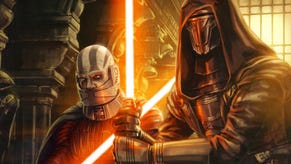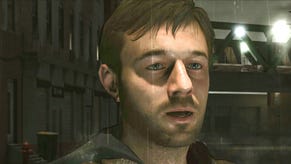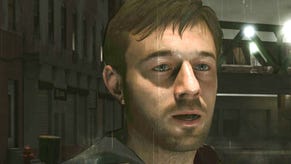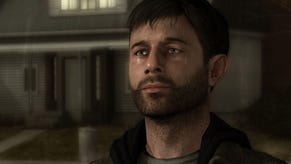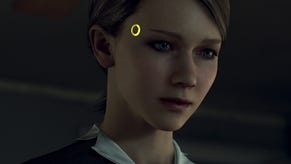Caged Emotion
Heavy Rain creator pours his heart out.
David Cage and Sony could be considered visionaries for what they are attempting with Heavy Rain. Rarely before has so much money been gambled on emotion and story without the safety net of a post-apocalyptic American city full of monsters to shoot in the face.
Heavy Rain, just months away from a Q1 2010 release, is already playable, massive and handsome. But is it all smoke and mirrors? Can we really convince people that videogames are as capable as films at producing meaty, intellectual content? Cage, founder of Quantic Dream, believes so. We sat down with him at the Eurogamer Expo 2009 to find out more.
Trying to tell stories with interactivity is something really difficult that some people tried in the past and many people failed, so there are less volunteers to try that again. So I think yeah, we're pretty much alone at the moment. But I hope it will give ideas to other people so they will try on their own, using their own way and their own sensibility to do it differently. There are many opportunities in this medium to tell interesting and compelling stories, to create very emotional experiences.

I want to be a pioneer but I don't want to die in the desert. When you try to invent something new you need to have some kind of commercial success, otherwise you just try to be innovative for the sake of being innovative. When you create something you want people to like it and to really enjoy it. If that's not the case, that means maybe what you've invented doesn't really have a value. And I'm talking commercial value, not creative value.
I don't put it that way. What we try to do with Heavy Rain is to feel what the characters on screen feel, to put you in their shoes, in their situations, and to make choices for them, to feel their emotions. I don't think there are good emotions and bad emotions, videogames so far have just explored the adrenaline side and frustration and competition. But there are many other emotions that are triggered very successfully in movies, in television series, in novels, in theatre, in poetry, in painting. Why would videogames just be limited to anger and fear? I can't see any reason for that.
It's not about being safe, it's a matter of trying to offer a different type of experience, bringing maybe more depth and more meaning than traditional videogames. That's what we try to achieve. And it's very difficult and very challenging, especially because you have a controller and the way to interact with what's going on goes through the controller, so you need to find a way of making the controller tell a story - putting the challenge in the mind of the character, rather than on his thumbs.
There are many, many different difficulties, one of them being that there is no grammar, at the moment, for interactive storytelling. It has to be invented. It's not like when you're making a shooter. There are so many shooters out there. You know, in other words, what doesn't work, what you can improve, what you to try differently. But when you try a new genre you need to invent the words of this new language. And you can borrow; we borrowed from movies, we borrowed from television series and novels. But at the same time you have many missing words that you have to create and invent.

That's an interesting point, because in the game community sometimes there is a feeling that we should not borrow anything from anyone and just invent from scratch. If you look at the other mediums you realise it has never happened in the past. I mean, TV series borrowed from cinemas, cinemas borrowed from photographs, photographs borrowed from paintings. Nothing is created from scratch: everything has to start from established grounds.
With Heavy Rain we borrowed from cinema a lot and we borrowed from TV series, because there are some codes about how to tell a story, how to structure a story, how to create an emotional arc for the characters that are already established and very well demonstrated not only in movies but also in books.
There's no need to reinvent this. There's a very famous book written by someone called Joseph Campbell, it's very old, it's called The Hero with a Thousand Faces. It really influenced all Hollywood, because it analysed all the tales, mythology, this kind of stuff, to understand the basic rules to tell stories and to create characters. And this is what Hollywood uses, what most writers use these days. It's the same starting point for us. It can be the same starting point; it cannot be the whole thing. We are not cinema, we need to invent our own rules on top of this.


